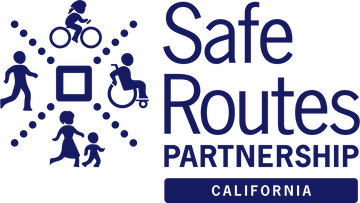The California state legislature came back into session on Monday, December 5, and wasted no time in introducing new legislation on a variety of issues, including transportation funding. The “California Rebuild” package was introduced in the State Senate and includes new funding for transportation, housing, water and parks through five separate bills. Senate Bill 1 (SB 1), the Transportation Infrastructure and Economic Investment Act, proposes to spend $6 billion annually on transportation projects. Revenue would be raised through several mechanisms, including increases to the gas tax, excise taxes, vehicle registration fees and truck weight fees. Funding would be split 50/50 between state and local agencies. The proposal has a companion bill in the Assembly, AB 1, with similar language. The proposal largely mirrors the proposal from the transportation special session (SBx1-1 and ABx1-26), which ended with no deal in late November. It appears that when time ran out on the special session, legislators decided to resurrect the proposal right away in the next session.
On the positive side, the Active Transportation Program (ATP) would receive an additional $80 million annually, and potentially another $70 million through Caltrans efficiency improvemnets. This would more than double the annual amount available in the ATP, which remains heavily oversubscribed (see our latest ATP post for the latest on that).
On the downside, this is a miniscule amount of funding in an overall $6 billion deal. Most of the funding would go to road and highway construction. There are also no requirements for funding to be spent in disadvantaged communities, and a heavy focus on freight and goods movement that negatively impacts those communities and air quality overall. There is also very little money for transit projects, and most of the funding for transit would come from cap-and-trade (the Greenhouse Gas Reduction Fund) which has an uncertain future and diminishing auction results as of late. The bill also proposed some streamlining of the California Environmental Quality Act for road improvements within the existing right-of-way, which could be problematic for creating for walkable, bikeable streets.
In November, we submitted an opposition letter to the special session funding proposal with 45 other organizations (view it here) outlining recommendations for improving it. Our main recommendations are below:
- 1. Require state transportation dollars to provide direct and quantifiable benefits to low-income and
- transportation disadvantaged communities.
- 2. Align the State Transportation Improvement Program (STIP) to our statewide and regional
- climate goals by tracking the performance of our transportation projects.
- 3. Require the California Transportation Plan (CTP) to direct state and federal transportation
- investments to ensure progress toward statewide 2030 and 2050 climate goals.
- 4. Restructure the California Transportation Commission (CTC) to have expertise and oversight
- capacity in environmental justice, public health, climate change, and sustainable transportation.
- 5. Ensure a significant, secure funding source for public transit operations that is invested
- equitably, including a student transit pass program, without allocating Greenhouse Gas
- Reduction Funds in the Special Session.
- 6. Direct the Caltrans State Highway Operation Protection Program (SHOPP) to build complete
- streets with improvements identified through robust community engagement.
- 7. Mitigate negative impacts of the Trade Corridor Improvement Fund’s (TCIF) freight investments
- and align TCIF investments with the Sustainable Freight Action Plan.
- 8. Expand access to transportation workforce training and jobs for individuals with barriers to
- employment, per federal DOT workforce guidance.
- 9. Protect the integrity of CEQA and avoid unintended environmental damage.
We will continue working with our partners to advocate for these changes to the proposal before we can support it.
See Streetsblog for additional coverage on this bill.
Other California Rebuild Bills: Other bills in the”California Rebuild” package address goods movements (SB 4), affordable housing funding (SB 2), a statewide housing bond (SB 3) and water and parks (SB 5). We are coordinating with our partner organizations in these fields to learn more about these bills and if we will support them in their current form or suggest improvements.
Student Transit Passes are Back: Finally, last year’s student transit pass bill, AB 2222, has been resurrected as AB 17. It only addresses low-income students in middle school and above, and funding would likely come from public utilities or some other sources that is not cap-and-trade funding.
Next Steps: This is only the beginning of the legislative session, and many more bills will be introduced between now and February 17. The legislature is now on recess until January 4, so not much will happen until then. We are also working with partners to determine legislative priorities for next year and propose additional bills, including resurrecting AB 2796 to set aside ATP funding for non-infrastructure and planning projects. We are also proposing another Transportation Equity Package that would include the ATP set-aside, student transit passes and other bills. We will have more news on that front in early 2017!


